India’s moral reckoning: From non-alignment to Netanyahu’s shadow
India’s silence on Gaza reflects a moral collapse, trading historic empathy for arms, trade, and expedience.
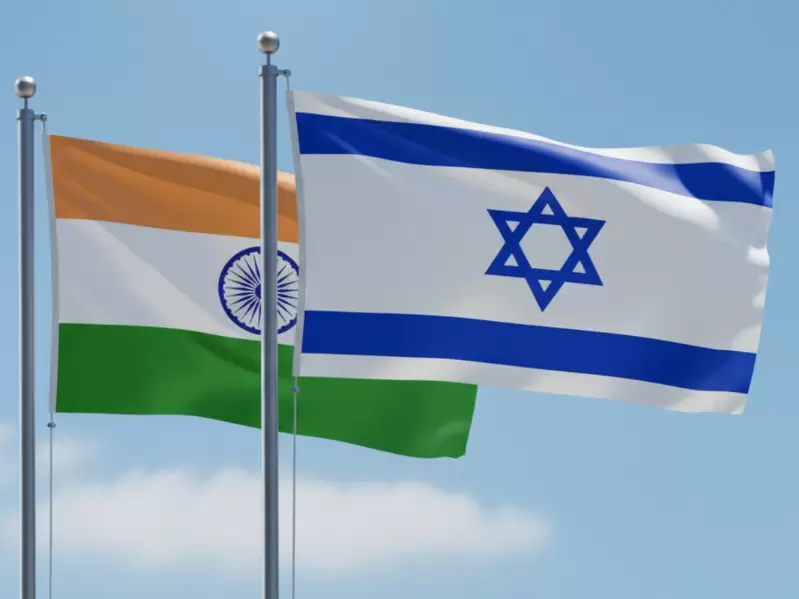 Representative image / AI generated
Representative image / AI generated
In the shadow of Gaza’s ruins—where over 55,000 Palestinian lives, including those of 17,000 children, have been extinguished in a campaign of calculated devastation—the world grapples with a question that echoes through history: when does solidarity with the oppressed become complicity in their erasure?
For two years, Israel’s bombardment has reduced a territory of 2.3 million souls to rubble, displacing nearly all its inhabitants and engineering a famine-like siege that the International Criminal Court has deemed a war crime.
Yet amid this horror, a darker narrative unfolds: the assassination of American conservative leader Charlie Kirk, whose probing questions about October 7’s anomalies have ignited conspiracy and coercion, revealing the lengths to which power will go to silence dissent.
Kirk’s death on Sept. 10, 2025, at Utah Valley University, came weeks after he publicly queried whether a “stand down order” enabled the Hamas incursion that killed 1,200 Israelis—a breach in one of the world’s most fortified borders that still defies scrutiny.
How, in a zone where a single Palestinian step risks annihilation, did militants rampage unchecked for hours, evading Mossad’s vaunted intelligence?
Kirk’s skepticism, echoed by Israeli whistleblowers who decried fabricated atrocity tales, marked his rupture from pro-Israel orthodoxy.
Reports emerged of a $150 million inducement from Benjamin Netanyahu’s allies to his Turning Point USA foundation, an offer Kirk rebuffed, even as the Israeli prime minister reportedly courted him with promises of more.
His friend, a Trump insider, later revealed Kirk’s growing dread of the “Israel lobby”, describing him as “frightened” after uncovering what he believed was Israeli espionage within the administration.
Netanyahu’s swift denial in a September 18th video—“Israel did not assassinate Charlie Kirk”—rang hollow to many, an unsolicited plea that only fueled suspicion.
Tucker Carlson, in a eulogy laced with biblical echoes of ancient Jerusalem’s plots, seemed to intimate as much, likening Kirk’s fate to Christ’s crucifixion and decrying “people in charge” who silence truth-tellers—a trope that drew swift condemnation as antisemitic blood libel from Jewish leaders and the Anti-Defamation League.
A 22-year-old Utahn has confessed to the shooting, but the optics of Netanyahu’s intervention and Kirk’s prior defiance have supercharged far-right whispers of foul play, fracturing America’s conservative alliance with Israel just as Gaza’s agony peaks.
Viewed in context, this is no isolated tragedy; rather, it is a symptom of a global order buckling under the weight of unchecked impunity.
Three-quarters of United Nations members—157 nations, from Algeria’s pioneering 1988 recognition to recent converts like Britain, Canada, Australia, Portugal, France, Belgium, Luxembourg, Malta, and Andorra—now affirm Palestine’s sovereignty, a cascade that isolates Israel and its lone veto-wielding patron, the United States.
Slovenia has barred Netanyahu’s entry; multiple European states, bound by ICC warrants for war crimes and crimes against humanity, have vowed his arrest upon arrival.
Even his flight to the UN General Assembly skirted French and Spanish airspace, a serpentine detour born of fear that emergency landings might deliver him to The Hague.
America’s fealty, meanwhile, borders on the fanatical. Its Secretary of State invoked the biblical promise of Israel’s security while outlining a postwar Gaza under reformed Palestinian Authority rule—yet his words rang tinny against the administration’s vetoes of UN ceasefires and a proposed bill empowering passport revocation for those deemed to aid “terrorism,” a vague cudgel, critics fear, could muzzle Israel’s critics.
Though amended amid outcry, the measure’s shadow lingers: in a nation priding itself on free speech, dissent on Gaza risks exile.
Enter the Global Sumud Flotilla, a defiant armada of 50 vessels laden with aid and resolve, led by Greta Thunberg in her second bid to pierce Israel’s naval blockade.
Drones have harried them—dropping flashbangs off Tunisia, jamming radios with ABBA’s ironic anthems off Crete, and damaging one ship in a midnight assault that left activists choking on chemical fumes.
Israel’s threats of “terrorism” charges prompted an unprecedented European riposte: Italy dispatched two frigates, Spain a warship, their hulls shielding civilians from what Thunberg calls a “deadly” intercept.
In a Mediterranean once plied by Phoenician traders of peace, warships now escort mercy, a tableau of moral inversion.
It is against this chiaroscuro—global revulsion clashing with Washington’s zeal—that India must confront its own drift.
Once the Non-Aligned Movement’s lodestar, New Delhi championed Palestine’s self-determination, recognizing its statehood in 1988 and boycotting apartheid South Africa’s kin in Tel Aviv until 1992.
Jawaharlal Nehru’s vision fused anti-colonial empathy with strategic savvy: support for the Palestine Liberation Organization burnished ties with Arab oil powers, while quiet Israeli tech exchanges sowed seeds for future harvest.
India hosted Yasser Arafat, funneled aid to Gaza’s schools and clinics, and invoked UN values against settler encroachments—principles that, in Sonia Gandhi’s poignant words from her op-ed article in The Hindu on September 25, defined a “historical empathy” born of shared subjugation.
Gandhi’s essay, a clarion against the Modi government’s “profound silence”, indicts this abdication as “nothing less than genocidal” complicity.
“India’s voice, once unwavering in the cause of freedom and human dignity, has today become conspicuously muted,” she writes, tallying Gaza’s obliterated infrastructure and the “drip-feeding” of aid amid engineered starvation.
She lambasts “personalised diplomacy”—Modi’s bear hugs with Netanyahu—as eclipsing constitutional values, urging New Delhi to transcend “partisanship” for “principled leadership” rooted in the ethos of the freedom struggle.
“We owe Palestine… the courage to translate that empathy into principled action,” Gandhi implores; her plea is a mirror to India’s fading moral compass.
What, then, explains this pivot? Pragmatism, cloaked in ideology.
Bilateral trade with Israel has surged past $10 billion, fueled by drones that patrol Kashmir’s skies and missiles that guard Ladakh’s borders—37 percent of Israel’s arms exports now arm India.
Netanyahu, persona non grata in Europe, is fêted in Delhi; a bilateral investment pact signed amid Gaza’s siege underscores the crony calculus.
Yet this “de-hyphenation”—treating Israel and Palestine as discrete files—masks a deeper rupture.
Hindutva’s ascendance mirrors Zionism’s settler zeal, with Modi’s Ram Temple consecration echoing Jerusalem’s contested mount.
Public sentiment has tilted: surveys show Indian youth, once instinctive allies of Palestinian underdogs, now lionize Israel’s “resilience”, a narrative amplified by the BJP’s media machine.
The costs are mounting. India’s abstentions at the UN—on ceasefires, on Palestine’s upgraded observer status—alienate the Global South it purports to lead.
Gulf allies, from Riyadh to Doha, bristle at New Delhi’s equivocation, jeopardizing energy security and remittances from nine million expatriates.
Domestically, arrests of pro-Palestinian protesters stifle the pluralism that once defined Indian democracy, while Gaza’s specter fuels minority anxieties in a nation where Muslim voices grow faint.
India stands at an inflection: will it reclaim Nehru’s mantle, joining the 157 nations affirming Palestine’s dignity, or persist in Netanyahu’s orbit, a junior partner in a pariah’s gambit?
Gandhi’s exhortation rings urgent: this is no mere “foreign policy” quandary, but a “test of India’s ethical and civilisational heritage.”
As flotillas brave drones and Kirk’s ghost haunts American halls, New Delhi must choose—hug leaders or hoist values.
The right side of history demands the latter: an India that, true to its Non-Aligned soul, demands ceasefires, enforces ICC warrants, and builds bridges not to rubble, but to reckoning.
In Gaza’s silence, the Global South awaits its once-proud champion. Will India answer?
In the shadow of Gaza’s ruins—where over 55,000 Palestinian lives, including those of 17,000 children, have been extinguished in a campaign of calculated devastation—the world grapples with a question that echoes through history: when does solidarity with the oppressed become complicity in their erasure?
For two years, Israel’s bombardment has reduced a territory of 2.3 million souls to rubble, displacing nearly all its inhabitants and engineering a famine-like siege that the International Criminal Court has deemed a war crime.
Yet amid this horror, a darker narrative unfolds: the assassination of American conservative leader Charlie Kirk, whose probing questions about October 7’s anomalies have ignited conspiracy and coercion, revealing the lengths to which power will go to silence dissent.
Kirk’s death on Sept. 10, 2025, at Utah Valley University, came weeks after he publicly queried whether a “stand down order” enabled the Hamas incursion that killed 1,200 Israelis—a breach in one of the world’s most fortified borders that still defies scrutiny.
How, in a zone where a single Palestinian step risks annihilation, did militants rampage unchecked for hours, evading Mossad’s vaunted intelligence?
Kirk’s skepticism, echoed by Israeli whistleblowers who decried fabricated atrocity tales, marked his rupture from pro-Israel orthodoxy.
Reports emerged of a $150 million inducement from Benjamin Netanyahu’s allies to his Turning Point USA foundation, an offer Kirk rebuffed, even as the Israeli prime minister reportedly courted him with promises of more.
His friend, a Trump insider, later revealed Kirk’s growing dread of the “Israel lobby”, describing him as “frightened” after uncovering what he believed was Israeli espionage within the administration.
Netanyahu’s swift denial in a September 18th video—“Israel did not assassinate Charlie Kirk”—rang hollow to many, an unsolicited plea that only fueled suspicion.
Tucker Carlson, in a eulogy laced with biblical echoes of ancient Jerusalem’s plots, seemed to intimate as much, likening Kirk’s fate to Christ’s crucifixion and decrying “people in charge” who silence truth-tellers—a trope that drew swift condemnation as antisemitic blood libel from Jewish leaders and the Anti-Defamation League.
A 22-year-old Utahn has confessed to the shooting, but the optics of Netanyahu’s intervention and Kirk’s prior defiance have supercharged far-right whispers of foul play, fracturing America’s conservative alliance with Israel just as Gaza’s agony peaks.
Viewed in context, this is no isolated tragedy; rather, it is a symptom of a global order buckling under the weight of unchecked impunity.
Three-quarters of United Nations members—157 nations, from Algeria’s pioneering 1988 recognition to recent converts like Britain, Canada, Australia, Portugal, France, Belgium, Luxembourg, Malta, and Andorra—now affirm Palestine’s sovereignty, a cascade that isolates Israel and its lone veto-wielding patron, the United States.
Slovenia has barred Netanyahu’s entry; multiple European states, bound by ICC warrants for war crimes and crimes against humanity, have vowed his arrest upon arrival.
Even his flight to the UN General Assembly skirted French and Spanish airspace, a serpentine detour born of fear that emergency landings might deliver him to The Hague.
America’s fealty, meanwhile, borders on the fanatical. Its Secretary of State invoked the biblical promise of Israel’s security while outlining a postwar Gaza under reformed Palestinian Authority rule—yet his words rang tinny against the administration’s vetoes of UN ceasefires and a proposed bill empowering passport revocation for those deemed to aid “terrorism,” a vague cudgel, critics fear, could muzzle Israel’s critics.
Though amended amid outcry, the measure’s shadow lingers: in a nation priding itself on free speech, dissent on Gaza risks exile.
Enter the Global Sumud Flotilla, a defiant armada of 50 vessels laden with aid and resolve, led by Greta Thunberg in her second bid to pierce Israel’s naval blockade.
Drones have harried them—dropping flashbangs off Tunisia, jamming radios with ABBA’s ironic anthems off Crete, and damaging one ship in a midnight assault that left activists choking on chemical fumes.
Israel’s threats of “terrorism” charges prompted an unprecedented European riposte: Italy dispatched two frigates, Spain a warship, their hulls shielding civilians from what Thunberg calls a “deadly” intercept.
In a Mediterranean once plied by Phoenician traders of peace, warships now escort mercy, a tableau of moral inversion.
It is against this chiaroscuro—global revulsion clashing with Washington’s zeal—that India must confront its own drift.
Once the Non-Aligned Movement’s lodestar, New Delhi championed Palestine’s self-determination, recognizing its statehood in 1988 and boycotting apartheid South Africa’s kin in Tel Aviv until 1992.
Jawaharlal Nehru’s vision fused anti-colonial empathy with strategic savvy: support for the Palestine Liberation Organization burnished ties with Arab oil powers, while quiet Israeli tech exchanges sowed seeds for future harvest.
India hosted Yasser Arafat, funneled aid to Gaza’s schools and clinics, and invoked UN values against settler encroachments—principles that, in Sonia Gandhi’s poignant words from her op-ed article in The Hindu on September 25, defined a “historical empathy” born of shared subjugation.
Gandhi’s essay, a clarion against the Modi government’s “profound silence”, indicts this abdication as “nothing less than genocidal” complicity.
“India’s voice, once unwavering in the cause of freedom and human dignity, has today become conspicuously muted,” she writes, tallying Gaza’s obliterated infrastructure and the “drip-feeding” of aid amid engineered starvation.
She lambasts “personalised diplomacy”—Modi’s bear hugs with Netanyahu—as eclipsing constitutional values, urging New Delhi to transcend “partisanship” for “principled leadership” rooted in the ethos of the freedom struggle.
“We owe Palestine… the courage to translate that empathy into principled action,” Gandhi implores; her plea is a mirror to India’s fading moral compass.
What, then, explains this pivot? Pragmatism, cloaked in ideology.
Bilateral trade with Israel has surged past $10 billion, fueled by drones that patrol Kashmir’s skies and missiles that guard Ladakh’s borders—37 percent of Israel’s arms exports now arm India.
Netanyahu, persona non grata in Europe, is fêted in Delhi; a bilateral investment pact signed amid Gaza’s siege underscores the crony calculus.
Yet this “de-hyphenation”—treating Israel and Palestine as discrete files—masks a deeper rupture.
Hindutva’s ascendance mirrors Zionism’s settler zeal, with Modi’s Ram Temple consecration echoing Jerusalem’s contested mount.
Public sentiment has tilted: surveys show Indian youth, once instinctive allies of Palestinian underdogs, now lionize Israel’s “resilience”, a narrative amplified by the BJP’s media machine.
The costs are mounting. India’s abstentions at the UN—on ceasefires, on Palestine’s upgraded observer status—alienate the Global South it purports to lead.
Gulf allies, from Riyadh to Doha, bristle at New Delhi’s equivocation, jeopardizing energy security and remittances from nine million expatriates.
Domestically, arrests of pro-Palestinian protesters stifle the pluralism that once defined Indian democracy, while Gaza’s specter fuels minority anxieties in a nation where Muslim voices grow faint.
India stands at an inflection: will it reclaim Nehru’s mantle, joining the 157 nations affirming Palestine’s dignity, or persist in Netanyahu’s orbit, a junior partner in a pariah’s gambit?
Gandhi’s exhortation rings urgent: this is no mere “foreign policy” quandary, but a “test of India’s ethical and civilisational heritage.”
As flotillas brave drones and Kirk’s ghost haunts American halls, New Delhi must choose—hug leaders or hoist values.
The right side of history demands the latter: an India that, true to its Non-Aligned soul, demands ceasefires, enforces ICC warrants, and builds bridges not to rubble, but to reckoning.
In Gaza’s silence, the Global South awaits its once-proud champion. Will India answer?
(The views and opinions expressed in this article are those of the author and do not necessarily reflect the official policy or position of New India Abroad)
ADVERTISEMENT
ADVERTISEMENT
E Paper
Video




 Satish Jha
Satish Jha


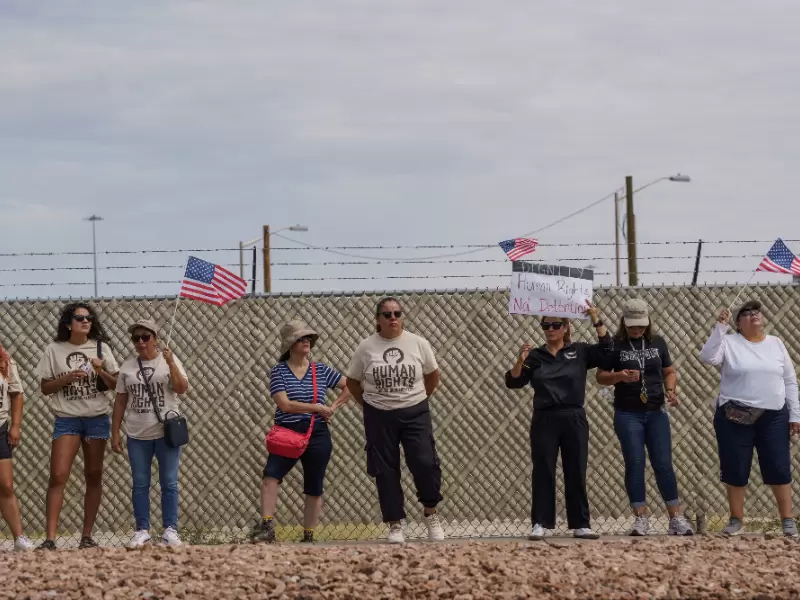



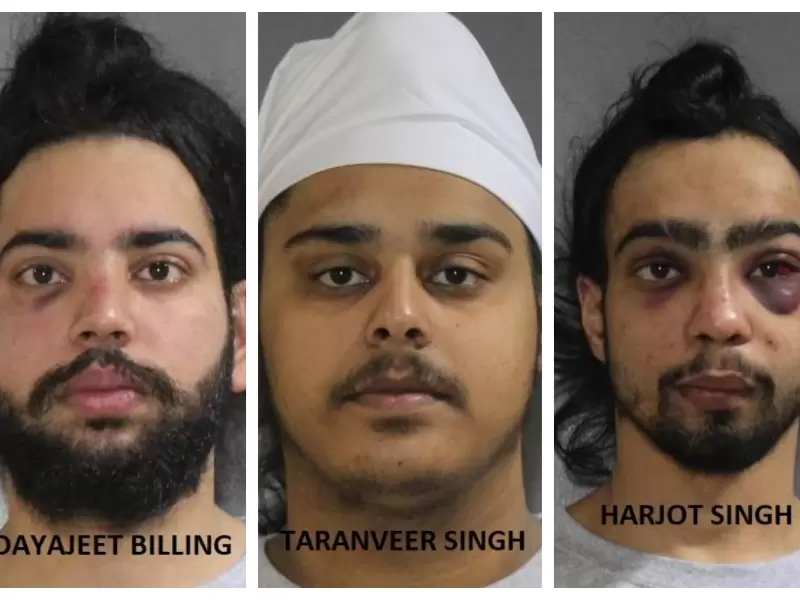


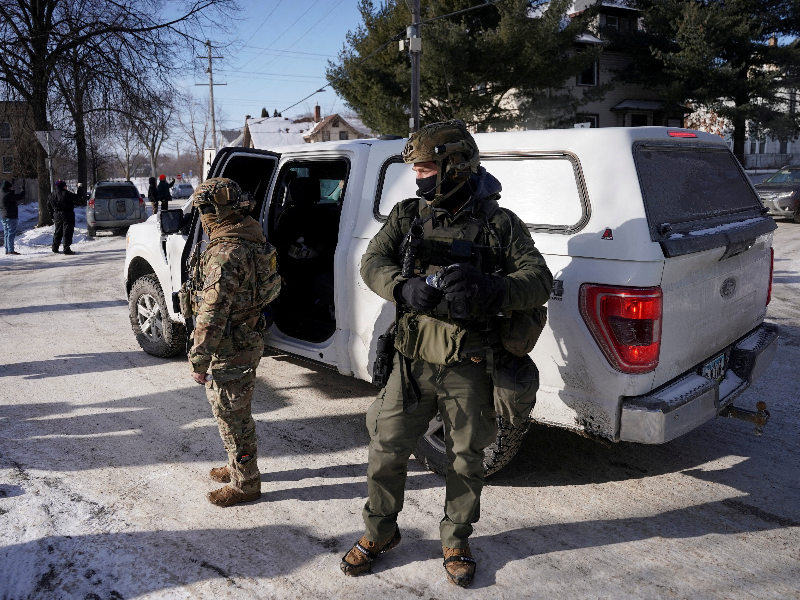
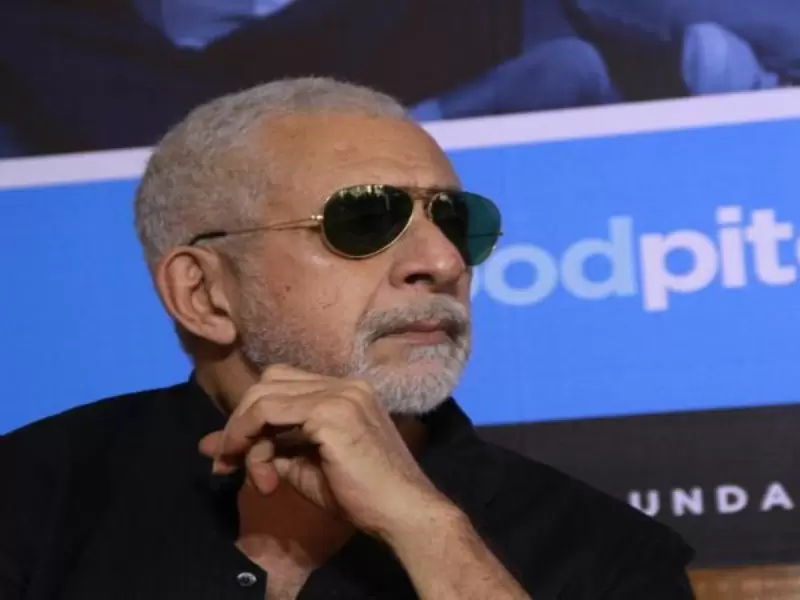


Comments
Start the conversation
Become a member of New India Abroad to start commenting.
Sign Up Now
Already have an account? Login